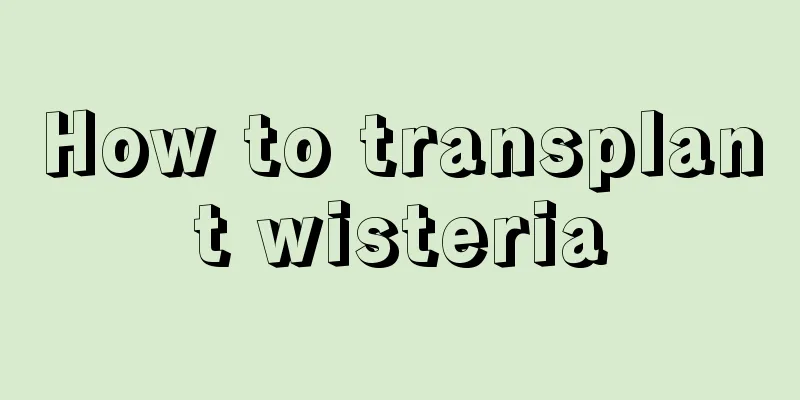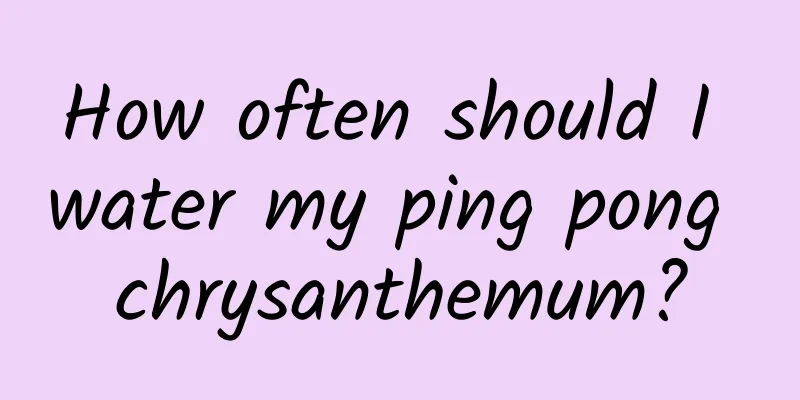How to transplant wisteria

Environmental requirements for wisteria transplantationsoilWisteria has a deep root system, a deep taproot, and few lateral roots, so the survival rate of transplantation is low. Therefore, you should choose dry soil with a deep soil layer, fertile soil and good drainage. When choosing potting soil for home transplanting, try to choose soil from highlands that is relatively fertile and dry. FertilizationThe soil obtained directly from nature has relatively poor fertility, so a small amount of base fertilizer should be applied, and animal manure can be chosen. Light water supplyWisteria does not require separate care to grow. After transplanting, just place it outdoors or on an open balcony to avoid rain. Proper watering is not necessary, normal sunlight exposure is enough. Transplantation methodPlanting, stentingWisteria flowers grow in a twining pattern, so they must be planted before transplanting. Build a sturdy trellis around it and tie the thick branches to it, allowing them to grow around and around. Wisteria has a long lifespan, with thick branches and lush leaves, so the support must be solid and durable. Potting and plantingSome families grow wisteria in the open field, and they can plant it directly after setting up the support. If it is a flowerpot, be sure to plant the plant in the center of the pot to prevent the plant from becoming too strong later and causing the flowerpot to tilt and fall. Pruning. Usually, seedlings cannot grow flower buds quickly when they are transplanted, but if the plants have been planted for several years, there will be no flower buds after transplantation. You should consider pruning the plant. The plant grows too vigorously, and its lush branches and leaves take up most of the nutrients. At this time, appropriate thinning of the branches and leaves, or appropriate topdressing can enable it to bloom in time. Precautions✔The survival rate of wisteria transplantation is low, so when transplanting, be careful to retain a small amount of soil on the roots, or reduce the number of branches. ✔If you want the wisteria to bloom in time after transplantation, you need to apply appropriate fertilizer. During the growing season, top dressing is usually applied 2 to 3 times, with more potassium fertilizer applied. When flowering, weak branches should be pruned in time to promote the formation of branch buds. ✔Wisteria usually buds in March and blooms in April, but the maintenance conditions vary slightly. |
<<: How to grow gardenia in winter
>>: How to Make Your Own Gardenia Fertilizer
Recommend
What kind of soil is best for growing roses (what kind of soil is suitable for growing rose potted plants)
Roses have a gentle fragrance that can be smelled...
The difference between Japanese red maple and Chinese red maple
1. The difference between leaves 1. Color: The ne...
Don’t throw away the old soil after repotting. Add some of this, it is more fertile than nutrient soil!
Soil disinfection methods 1. First of all, the ol...
How often should I water the flowers?
How often should I water the flowers? Anthurium g...
Panax notoginseng growth environment conditions and characteristics
Panax notoginseng growth environment conditions a...
What is lettuce?
What is lettuce? Romaine lettuce is a plant of th...
How often should I water my Christmas cactus?
How often should I water my Christmas cactus? Chr...
Can multi-headed chrysanthemum be grown in water? How to grow it in water
1. Can it be raised in water? Multi-headed chrysa...
The correct maintenance method of red
After the impatiens blooms, the flowers are very ...
How to breed white jade tiger skin orchid and precautions
How to reproduce white tiger lily There are two w...
Cabbage seed germination method
To germinate cabbage, first fill a basin with war...
How much fertilizer to apply to a cherry tree (when and how much fertilizer to apply to a cherry tree)
The area of cherry cultivation here is quite la...
When is the best time to plant cauliflower?
Cauliflower comes in a variety of colors, includi...
When and how to plant grape hyacinths
1. Planting time When planting, you must choose t...
What are the cultivation methods and precautions of pine red plum
Introduction of Pine Red Plum Pine Red Plum is a ...









